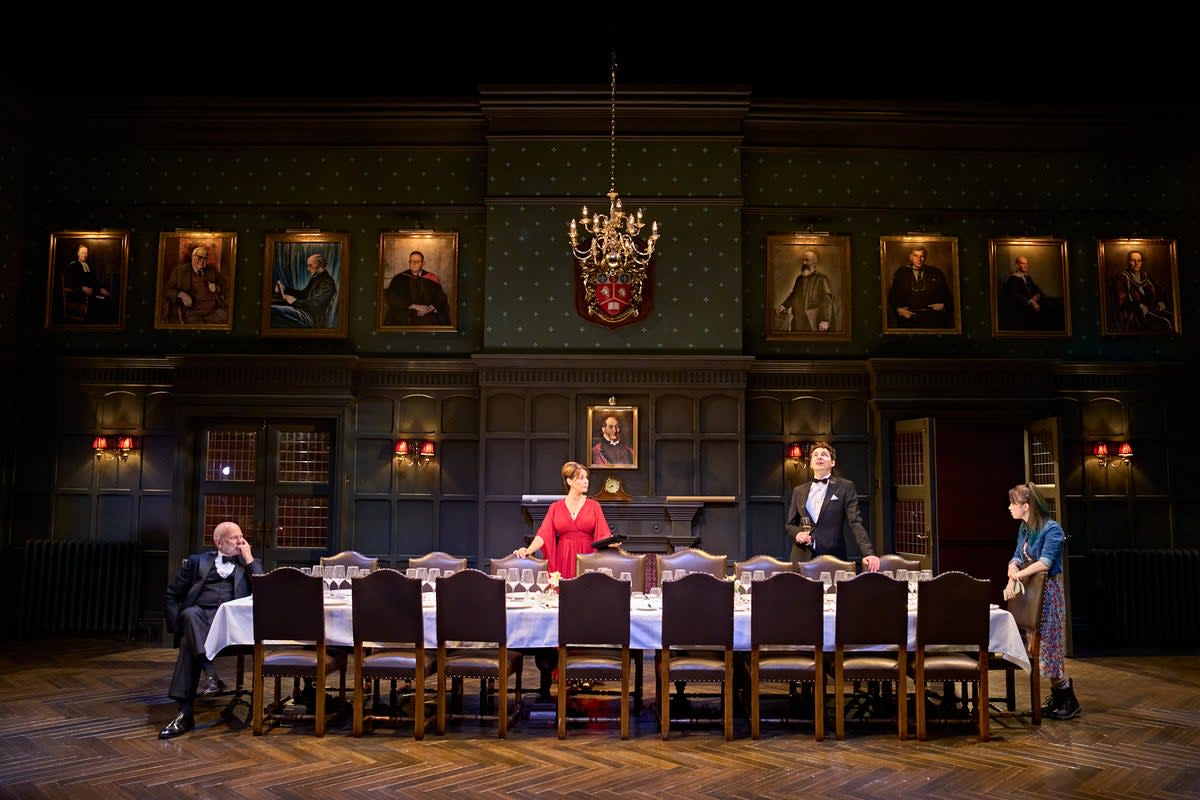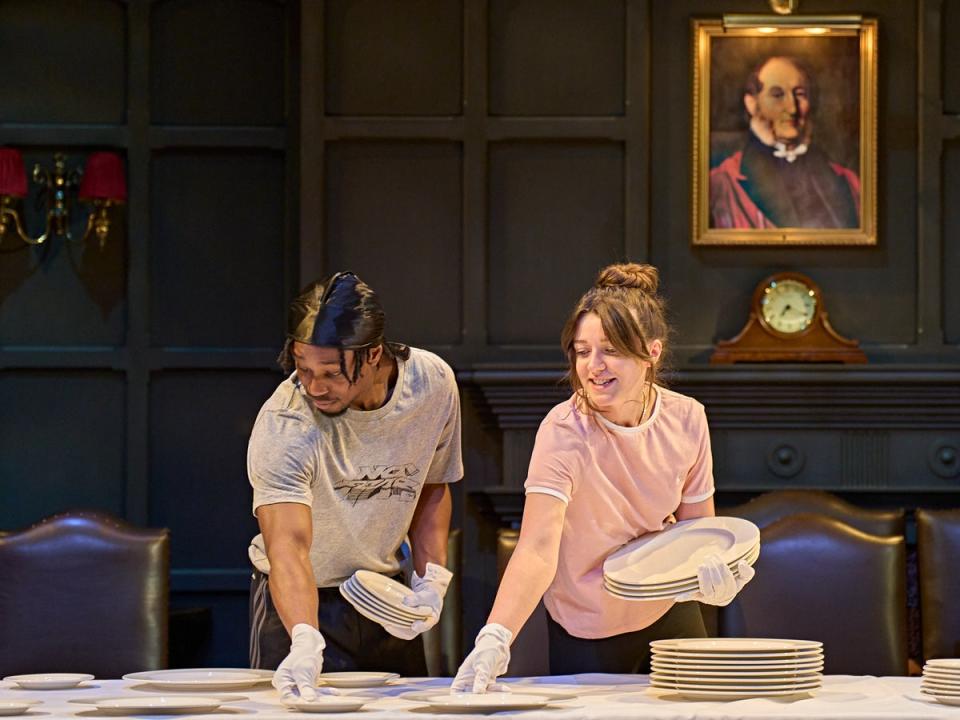The Snail House at Hampstead Theatre: Richard Eyre’s long-awaited debut play sorely disappoints

A privileged, emotionally thermonuclear family thrash out their differences over Brexit, climate change, and a bucketload of other issues in this confused debut play by Richard Eyre, 79. A superlative director and adapter of others’ work on stage and screen since the 60s, who ran the National Theatre for ten years, Eyre is truly one of the great and the good, a shaper and defender of British culture. Maybe that’s why no-one felt they could suggest a redraft – or a complete rethink - of this sporadically amusing but sprawling mess, which he also directs.
It unfolds in real time in two scenes, before and after the party celebrating the birthday and knighthood of Neil Marriot (Vincent Franklin, his bluff veneer breaking into sweaty desperation from the start). A Lancastrian, self-made pediatrician who voted Leave and pronounced on public health during Covid, Neil’s also a bad husband and father. His son Hugo (Patrick Walshe McBride, overweeningly smarmy) is a gay, right-wing government SPAD who craves his father’s love. Favoured teenage daughter Sarah (Grace Hogg-Robinson, eyes permanently rolling) is a stroppy, Greta Thunberg-worshipping dropout who spurns it.
Rather than take sides, Eyre just sets this trio of egomaniacs yammering at each other, while mum Val (Eva Pope) alternately heckles and consoles from the sidelines. And to be fair, Sarah, Grace and Neil are all equally annoying. There are jokey jibes about wokery and about the Royal Family (“the chinless Kardashians”). Neil accuses Sarah of being patronising: “People don’t want to be improved!”

Around the Marriots, gig-economy caterers set up, then clear up. Everyone asks Raphel Famotibe’s laid-back Habeeb where he’s really from (“really, Barking” he replies). No one seems to mind that Megan McDonnell’s gobby, Irish Wynona insults everyone in between belting out unaccompanied Janis Joplin and Supremes numbers.
Their British-Nigerian supervisor Florence (Amanda Bright, striking a single note of affronted dignity) is set up early on as an incendiary device. She duly explodes in a late, lengthy and utterly bizarre interlude about child abuse and wrongful conviction that seems to come from another play.
If there’s a central point, it’s that we’d all benefit from more empathy and less acrimonious certainty. But it’s hard to discern any message from self-contradicting characters in an improbable setup. Why would Neil mount a party in his son’s former private school? Why would he entrust a speech to the daughter who despises all he stands for? Are emotionally wrung-out and staggeringly drunk characters really going to drive home?
These questions echo around Tim Hatley’s arid school-hall set. The actors do as well as they can with characters that are thin, inconsistent, or just unbelievable. I admire Eyre hugely but wouldn’t have tipped him as the theatre-maker most likely to make sense of any of our recent existential crises, let alone a pick-and-mix selection of them. Sure enough, he hasn’t.
Hampstead Theatre, to October 15; hampsteadtheatre.com


